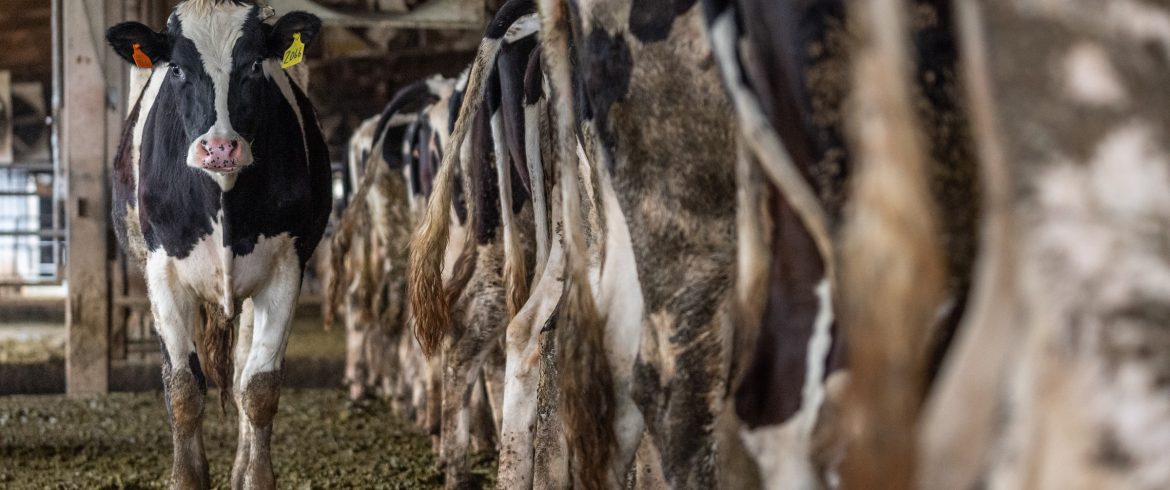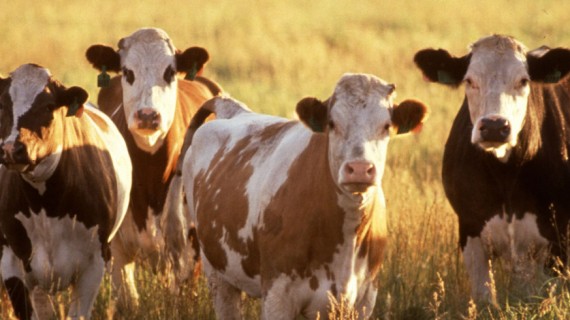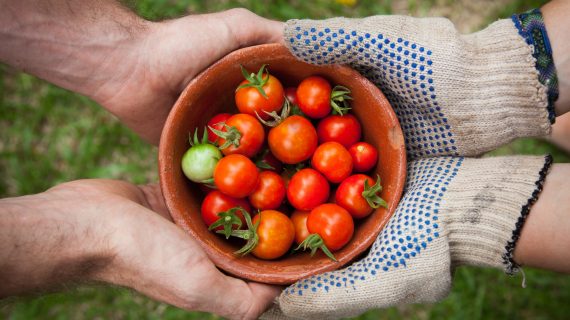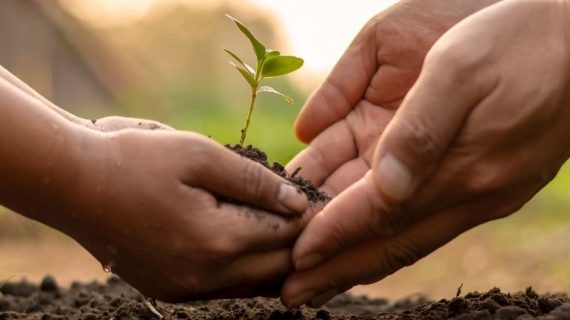Today we consume and produce meat more than we ever did. According to the Food and Agriculture Organization of the United Nations, every year 65 million animals are slaughtered for meat. More than 340 million tonnes of meat were produced in 2018 compared to 71 million tonnes in 1961. The demand for meat and meat consumption have increased a lot in the last 50 years as countries got richer and the populations grew.
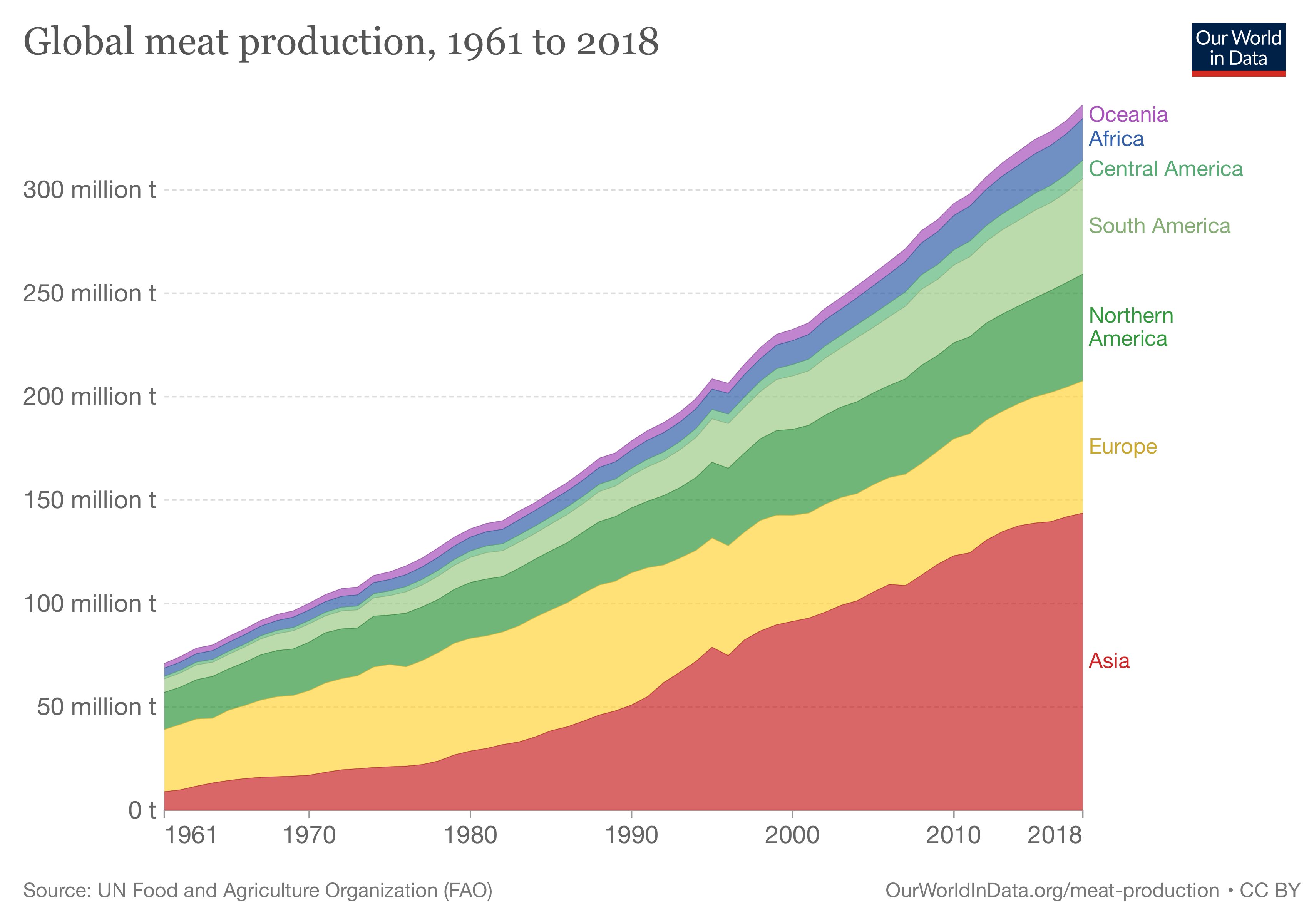
Of course, this massive production has consequences, intensive livestock farming has environmental effects and fuels global warming, deforestation, and water consumption and causes soil, air, and water pollution. In fact, about 25% of all the global climate change problems we are currently facing are connected to our diet. Firstly, livestock accounts for 14% of global greenhouse gas emissions, nearly as much as transportation. This alone should alert us on the gravity of the issue.
According to the FAO, 7 billion tonnes of CO2 are generated annually, 41% of these emissions are caused by the production and processing of feed for the animals, and 44% are due to enteric fermentation (ruminants produce a large amount of methane during their digestion which is more harmful than carbon dioxide), 10% are due to manure storage and processing, what’s left is caused by the transportation of the final product, meat.
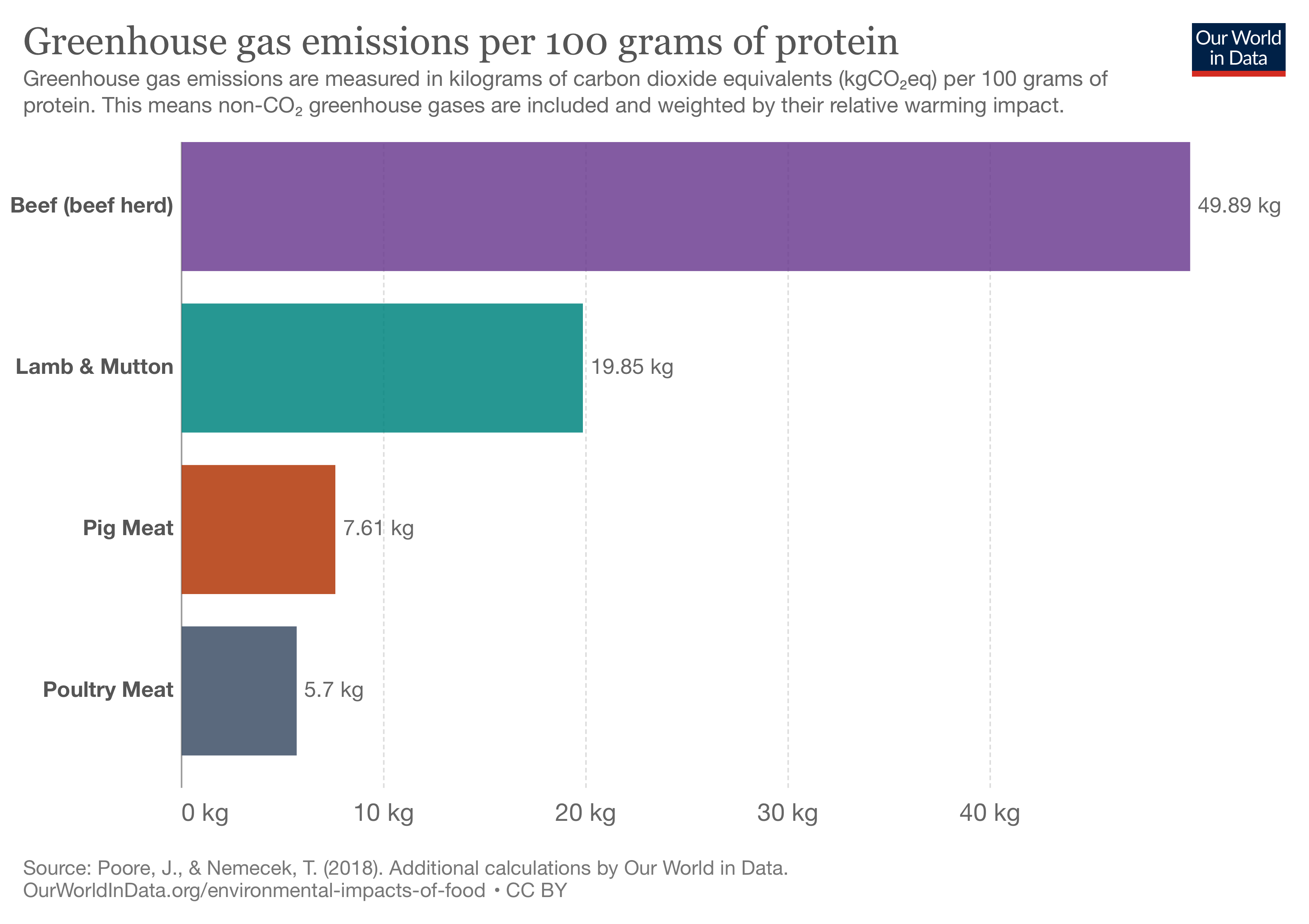
However, not all livestock is raised equally, and therefore not all livestock has the same ecological footprint, for instance, beef and lamb are the meats that cause the majority of gas emissions (74%) and they require large amounts of water (13.500 liters for 1 kilogram of meat only) compared to pork (4600 liters) or chicken (4100 liters). Moreover beef fuels climate change the most but it’s the least consumed meat.
Another issue is the deforestation to make way for livestock, the vast majority of farmland (70%) is used to plant corn, wheat, and soy to feed livestock when it would be enough to feed at least 3 billion people. The lack of agricultural land causes deforestation, it’s the case in the Amazon rainforest where 91% of land acquired through deforestation is used for grazing or for the production of soybeans that will later be fed to cattle.
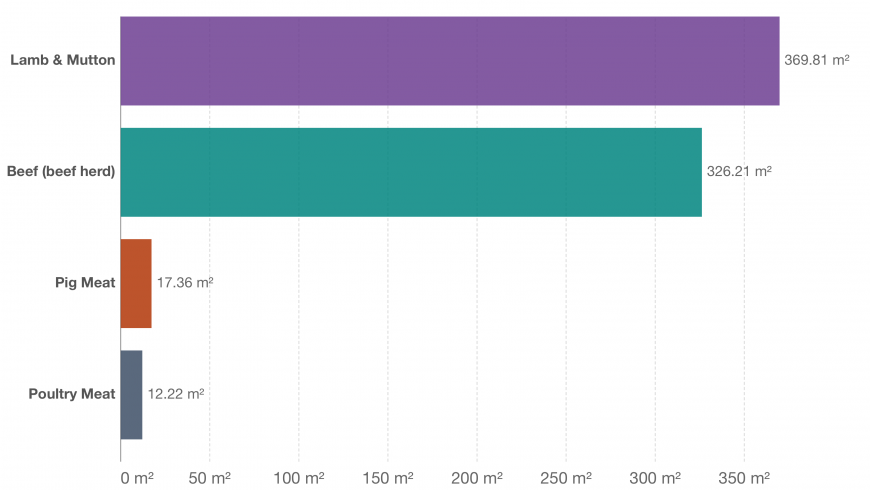
The current meat rearing practices are unsustainable and the situation will worsen as in a few decades the global population will grow to 10 billion, as a result finding new sustainable ways to produce food is an urgent matter and requires everyone to do an effort to reduce our meat intake, we don’t have to become vegetarian or vegan, but we can lead a healthier lifestyle for us and for our planet, not to mention that there are plenty of alternatives to meat such as soya beans, lentils, and eggs, people tend to forget that they can provide us with more proteins than meat can.
Cover image: Photo by Jo-Anne McArthur on Unsplash
